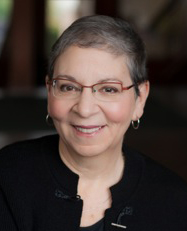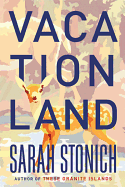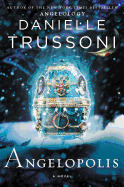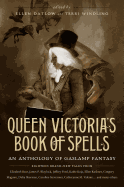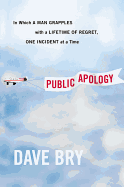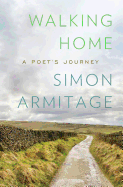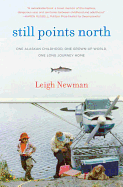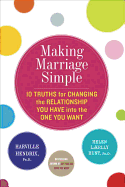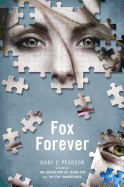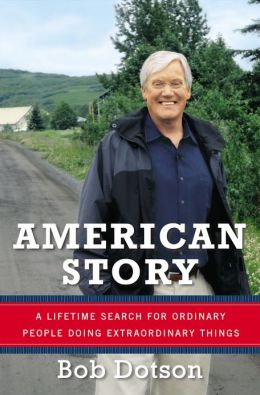 Bob Dotson is an NBC News correspondent whose "American Story with Bob Dotson" is seen on Today and other NBC News programs. He was also the writer and host of Bob Dotson's America on the Travel Channel. His work on "American Story" has received more than 100 awards for broadcast journalism. Dotson has been crisscrossing the country for more than 40 years in search of people who have quietly but profoundly changed our lives and our country for the better. In American Story: A Lifetime Search for Ordinary People Doing Extraordinary Things (Viking, $26.95, March 26, 2013), he presents a road map to the unsung heroes with thoughtful solutions to problems we all face, incredible ideas that work, and blueprints to living our dreams.
Bob Dotson is an NBC News correspondent whose "American Story with Bob Dotson" is seen on Today and other NBC News programs. He was also the writer and host of Bob Dotson's America on the Travel Channel. His work on "American Story" has received more than 100 awards for broadcast journalism. Dotson has been crisscrossing the country for more than 40 years in search of people who have quietly but profoundly changed our lives and our country for the better. In American Story: A Lifetime Search for Ordinary People Doing Extraordinary Things (Viking, $26.95, March 26, 2013), he presents a road map to the unsung heroes with thoughtful solutions to problems we all face, incredible ideas that work, and blueprints to living our dreams.
You have said, "Learning is a lasting frontier." After almost 40 years as a broadcast journalist, what did writing American Story, your latest personal frontier, teach you?
Most of the time I tell tales on television. That's a little like writing on smoke. Stories simply drift away. But not always. Those that revealed what it took to build and maintain America lingered. Over the years, often working on my own time, I found folks in all walks of life with good ideas. Many of their insights had been forged in hard times, tested and endured. I came to the conclusion that our country would be better served if we listened more to people who don't have titles in front of their names, people just like us who connect the seemingly unconnected, everyday, and find common-sense solutions, which they implement with little fanfare. They appear so ordinary we seldom seek their knowledge, but what these ordinary Americans have learned could send a committee to lunch.
When you first began "American Story with Bob Dotson" on The Today Show, there were skeptics who thought you'd soon run out of suitable subjects. Time has proven those skeptics wrong, but did you ever think that you were running low on candidates for the show?
Each of these people was as difficult to discover as a gold nugget. I had to dig out drama and dimension in the lives of what most editors dismiss because the people in American Story did not send out press releases. But they were the ones living the lives that inspire.
The toughest part of my job is finding those folks. The possibilities are endless, though, because this country attracted pioneers with intensity and drive who quietly lived the values that built America. The country survives and thrives because of ordinary people who live life with passion, who succeed not just on talent and hard work, but also on curiosity and imagination.
In the course of conducting your interviews with "ordinary" Americans who have accomplished extraordinary things, you have drawn great stories out of them, along with unforgettable zingers like, "Money will buy a fine dog, but only kindness will make him wag his tail." Do you have any tips for aspiring journalists for gaining the trust and confidence of people not used to being interviewed?
I've noticed over the years that people nearly always answered my questions in three parts. First they told me what they thought I wanted to hear and then they explained in more detail. If I didn't interrupt, if I let the silence between us build, their answers got more precise and passionate because they figured I didn't yet understand. They began to tell me things I didn't know them well enough to ask.
A tornado victim I once interviewed described the approaching storm as sounding like a freight train. We've all heard that before. The answer I used bubbled up after a bit of silence built between us. He pulled a hunk of pink goo out of the rubble, a shattered set of dentures, and announced, "Well, the tornado got my teeth, but it didn't get me!"
It's important to help the person forget about your camera and lights. Put them at ease, so they're comfortable enough to tell you what you need to know. Talk about their hobbies, not your equipment. Make the technical stuff seem no big deal. If they're still nervous (and who isn't?) tell a funny story about your own struggles with all this. For instance, my mom always worried about my life's work. The first time I did an American Story for The Today Show, I called her to see what she thought. There was a long pause at the other end of the line. Then she said, "Bobby, I think you ought to learn a trade."
"A trade!" I stammered.
"Yes, they're not going to keep paying you for four minutes' work a day."
Your contributions on The Today Show and in this book reflect your credo: "The shortest distance between two people, no matter how different, is a good story." What people and experiences and influences embedded that truth so deeply in your being?
My dad and I didn't have a lot in common. He was an aging athlete. I preferred books. In his beefcake world, I was a patty melt. One day he flipped off the radio after listening to his beloved St. Louis Cardinals play baseball, turned to me and said, "If you sit around all the time, how will you know when you're done?"
We were two strangers in the same family until I heard his story. "Your grandfather Dotson joined the army and disappeared," he said one night. "Your grandmother was a short-order cook, a single mom who couldn't take care of three kids, so she turned me over to a farmer as an indentured servant. I was just 10 years old."
This moment seemed to be crushing my dad, as if time had weight. I wanted to know more. We lived in a nice house in a nice town. He owned an optical store and was a licensed optician.
"Your old man dropped out of school in the fifth grade, but I took night classes for 23 years!"
Pride pushed aside the haunted look in his eyes.
"I've read all those books you've been reading."
We were strangers no more.
At a low point in your career, way back when, your friend Bob Barry advised, "Try to make yourself one of a kind." You've also said that, "All my life I've been trying to tell as tale as well as my grandfather." How did you develop your own unique voice?
We all mimic the people we love when we start telling stories, but my mother's father, Paul Bailey, helped me find an original voice. He said, "When telling a tale, try to see beyond the normal. Show us what we might miss."
Storytelling is at its best when it topples ignorance and opens us to others. That's why I look for strong characters who are reshaping the world, as they would like it to be. It doesn't matter how long I have to tell their tale. Poets have been composing compelling stories at twitter-length since the beginning of time. They don't just write about going to the mall or a fight with their girlfriend. They say, "Honey, the gutter ain't a step up from you." That's a unique voice.
I start every story assuming nobody cares about anything I'm going to tell. That forces me to find the universal themes that will interest the greatest number of people. Then I follow a simple outline: "Hey, You, See, So."
· HEY! (WHACK): I get their attention. Murder mysteries begin with a dead body.
· YOU: This story may be about a farmer in Indiana, but this is how it connects to you.
· SEE: Here are the details I've found no one else has or if you've heard them before, I'll try to tell them so engagingly, you'll want to hear them again.
· SO: This is why you should care.
That's my blueprint to try to be one of a kind, every time.
We live in a celebrity-saturated culture that seems to equate success and fame with teenagers making millions warbling about thwarted love and heartbreak. You have learned from the people you've interviewed that "There is really only one genuine measure of success, to be able to live your life in your own way." How do you see these two very different narratives playing out as parallel stories in the future?
We've always had deadlines that sliced time too thin for thought, but now we have to fill 24 hours with news. That leads to formula reporting, an endless line of babbling heads and press-release storytelling. Many public relations professionals know the news business and its limitations better than the correspondents who cover their clients. They use that knowledge to get their messages reported as news.
If we don't look beyond powerful people and pop culture, we miss too much of the American story, but who will pay for this search when budgets are tight? Social media held the solution. My stories used to appear one time and then fade away. Not anymore. They end up on an electronic shelf that viewers can find when they have time. Five million people see my profiles on The Today Show--on the web, many millions more. That reality provides production money for would-be Bob Dotsons to do more than press-release reporting, to keep telling stories about us.
I was deeply struck by your statement that many of us are rediscovering "the fundamental lesson of survival--cooperation and compromise--while maintaining integrity." For those who are searching for sources of renewal, challenge and rediscovery, do you have recommendations for where to look?
Most of what we read today tells us about our frustrations--the widening gap between the haves and the have-nots and hate-filled politics that prefers gridlock to compromise. What we know about America mostly comes from journalists who travel in herds, trailing politicians or camped out at big stories, pouncing on problems to repeat over and over. They offer up celebrity experts for solutions, the people who spend their busy days spouting opinions to cameras, while others in the shadows quietly make America work. The answer to your question is not in the pages of one of those celebrity's books. We must look behind the media mirror to find compelling people standing in history's shadow. You pass them by every day. Stop and talk with them. That's where you will find the source of renewal, challenge and rediscovery. Those are the people who will help you plot a more informed path into the future. --John McFarland, author
Bob Dotson: People Standing in History's Shadow



BINC.1024.B1.HELPABOOKSELLER.jpg)
 Bob Dotson
Bob Dotson.jpg) The famed
The famed 